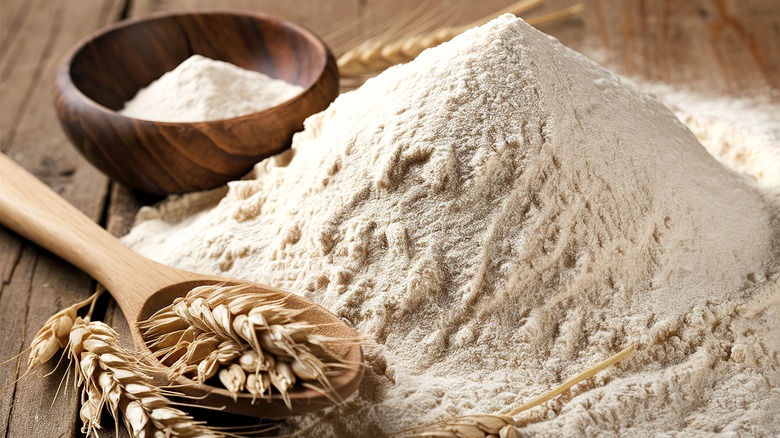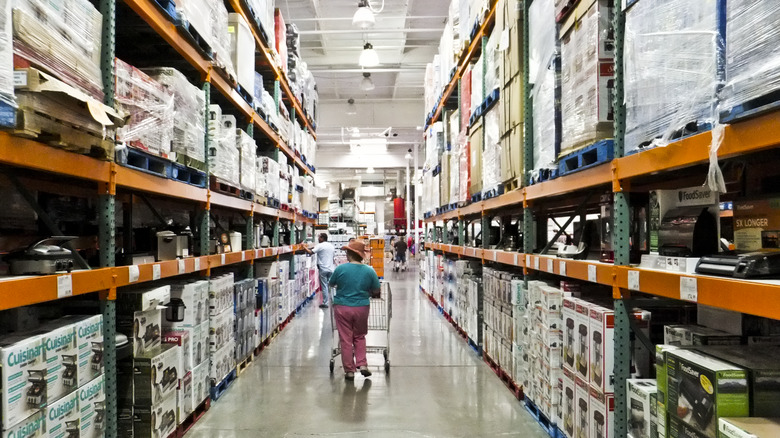The Company That Produces Costco's Organic Flour
It's Costco's name on the front of the jumbo warehouses, but who is it making your favorite Kirkland brand products? From pantry staples to snacks to sweets, a substantial percentage of products that Costco sells under its in-house Kirkland brand are not made in-house at all but rather supplied by a slew of manufacturers, brands, and distillers working somewhat in the shadows. Don't necessarily expect to see these suppliers credited on the Kirkland brand labels; the mystery of who creates what is typically only cracked by those who care enough to do the internet and grocery store detective work.
Such is the case with the Kirkland brand organic flour, which we now know is currently being supplied by Central Milling — makers of premium flour and grains with multiple headquarters around Utah and California. The employee-owned-and-operated company, according to its website, has been in operation for more than 150 years and remains dedicated to its mission to "preserve American farmland for tomorrow while providing the highest quality flour and grains to the bakers of today."
To reap what this company is sowing and score premium quality, unbleached, USDA-certified organic flour at the low prices we expect from the Kirkland brand, you needn't look further than your local Costco warehouse. On its own FAQ page, Central Milling slyly all but admits its product is being sold under the Kirkland label at Costco, noting that while it can't list all the companies it distributes to, the organic flour at Costco is "truly exceptional. Wink wink."
Premium brand flour at Costco prices
Costco's business model of working with outside suppliers has inspired a bit of a wild goose chase for dedicated foodies to track down the origins of each item, such as Costco's Canadian whiskey, Greek yogurt, or even the viral Costco food court hot dogs, which — surprise — are indeed made in house. The approach, while seemingly unique, is actually not. Other retailers like Trader Joe's operate much the same, leaving it up to eagle-eyed shoppers to deduce which companies are behind products like its wine or salad kits.
The reasons why Costco operates this way are numerous — and rather genius. It affords Costco greater quality control over the items it sells, creates savings that it can pass down to consumers, and means shoppers reap the benefits of scoring name-brand products (in many cases almost exact dupes save for the label) but at Costco prices. In many instances, items hail from considerably more upscale, premium makers than you might expect — such as when Starbucks was the roaster behind the Kirkland brand coffee. In the case of the organic flour Central Milling makes under the Kirkland label, the cost savings can be significant. If you were to purchase a bag of organic all-purpose flour straight from the Central Milling website, you'd be forking over close to $15 for a 10-pound bag. Or head to your local Costco, where you can grab two ten pound bags of virtually the same product, for around $16.99.

